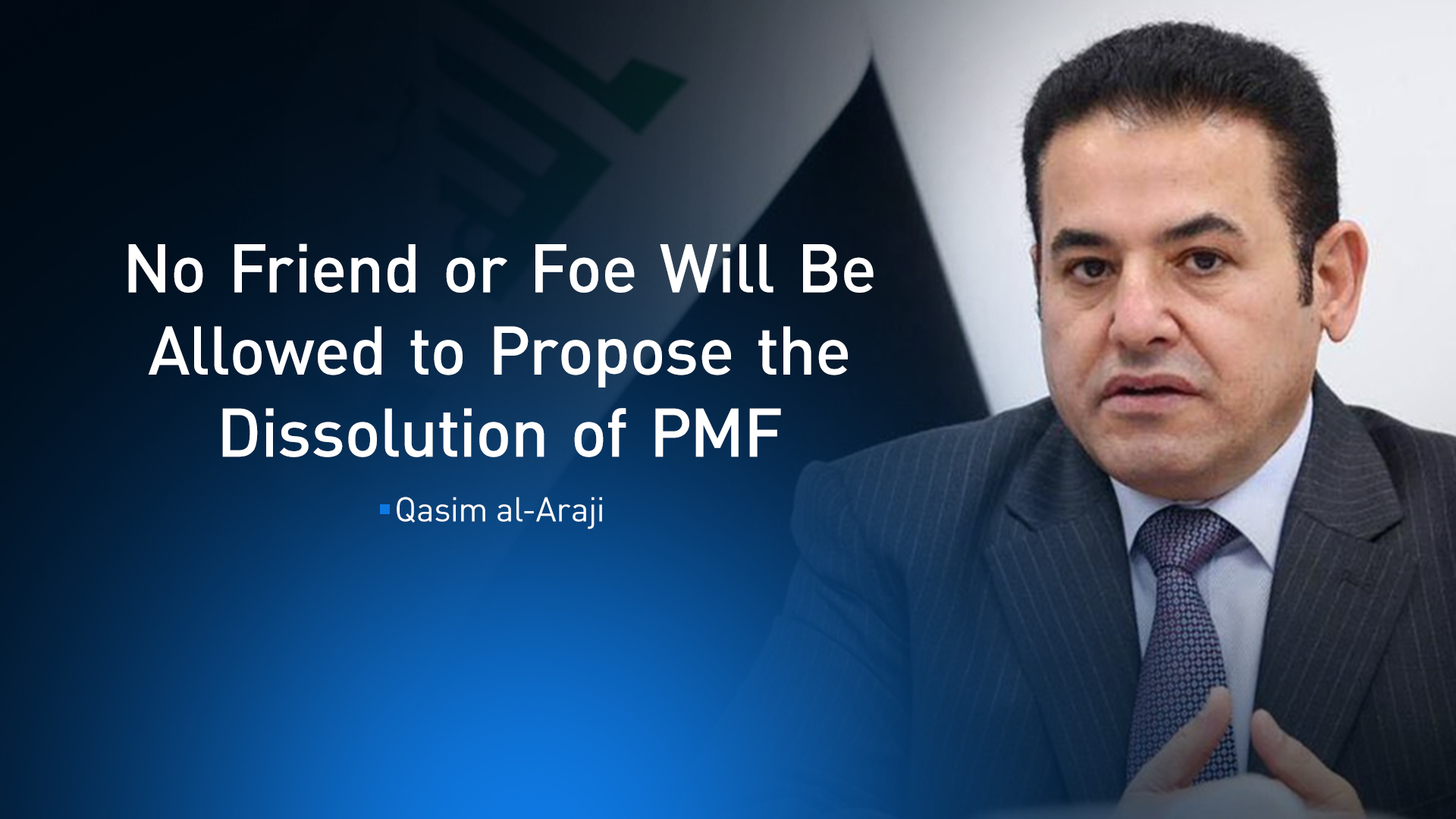Iraq Postpones Contentious PMF Bill Amid U.S. Warnings and Internal Divisions
Iraq’s National Security Advisor Qasim al-Araji confirms the controversial PMF bill has been postponed until after elections, citing internal and external pressures. The move follows stark U.S. warnings of military action and sanctions, as well as deep internal political divisions.

ERBIL (Kurdistan24) – In a candid admission reflecting the immense internal and external pressures facing Baghdad, Iraq’s National Security Advisor, Qasim al-Araji, has confirmed that the government requested the postponement of a highly controversial bill aimed at restructuring the Popular Mobilization Forces (PMF), mysteriously adding, "but do not ask for the reason for the postponement."
This halt to the legislation, which al-Araji indicated would be delayed until after the next parliamentary elections, follows a period of intense U.S. diplomatic warnings.
The controversial bill, which aimed to further institutionalize the powerful paramilitary network known as the Hashd al-Sha'bi, has been a major political flashpoint, threatening to destabilize Iraq's delicate internal balance and its strategic relationship with the United States. In a televised interview, al-Araji revealed that the decision was made after a careful "assessment of internal and external conditions." He explained that the bill "requires further clarification both at the domestic Iraqi level and externally before it is put to a vote," leading to the decision to defer it.
Despite the postponement, al-Araji delivered a defiant message regarding the PMF's future, asserting its permanent place within the state's security architecture. "The Hashd al-Sha'bi is a primary and integral part of Iraq's security and defense system," he declared. "So no friend or foe will be allowed to propose the dissolution of the Hashd al-Sha'bi, as it operates under the umbrella of the Commander-in-Chief of the Armed Forces."
The decision to shelve the bill came late last month after what sources described as intensified threats and warnings from the United States.
As previously reported by Kurdistan24, Iraqi Prime Minister Mohammed Shia' al-Sudani informed members of the ruling Coordination Framework that Washington had warned it would target 16 bases of armed groups if parliament proceeded with the legislation.
This stark message appears to have been a decisive factor, with the Coordination Framework ultimately deciding on August 22 to suspend the bill. Instead of pursuing new legislation, the government now plans to issue guidelines to address issues stemming from the original 2016 law that first formalized the PMF.
While some Iraqi officials have attempted to downplay the role of external pressure, the American position has been clear, consistent, and public.
In a phone call with Prime Minister al-Sudani on July 23, U.S. Secretary of State Marco Rubio conveyed Washington's serious concern, warning that the bill’s passage "would institutionalize Iranian influence and armed terrorist groups undermining Iraq’s sovereignty," according to a State Department statement.
This sentiment was echoed repeatedly by U.S. officials. The U.S. Embassy in Baghdad stated that the legislation "would institutionalize Iranian influence and strengthen armed terrorist groups," and State Department Spokesperson Tammy Bruce told Kurdistan24, "We strongly oppose any legislation that is inconsistent with the goals of our bilateral security assistance and partnership."
Former high-ranking Pentagon official David Des Roches provided a blunter assessment in an interview with Kurdistan24, arguing that "Iraq will not be a sovereign state so long as it has" an armed group paid by the state but existing beyond its full control. He described the PMF as having transformed from a force to fight ISIS into "an active threat to the Iraqi state from within."
Iraqi politician Mithal al-Alusi went further, warning of a "catastrophe" and severe U.S. sanctions if the law were passed, alleging that the groups function as "Iran's long arm in Iraq."
While U.S. warnings were a significant factor, the bill’s postponement was also driven by deep internal Iraqi politics.
As reported by Kurdistan24, divisions within the Shiite political bloc itself played a major role. An influential parliamentarian, Jawad Yasari, pointed out that these internal fractures, coupled with staunch opposition from Kurdish and Sunni parties, were critical in halting the legislation.
Shwan Kalari, an Iraqi MP, told Kurdistan24 that the boycott of parliamentary sessions by various factions was partly aimed at preventing the bill from passing, a move he supported because he believed the law "is not in Iraq's interest and will damage its relations with the United States."
Some members of the ruling coalition have tried to present the delay as a procedural matter.
Arif Hamami, a parliamentarian from the Islamic Dawa Party, told Kurdistan24 that the reason for withdrawing the bill was "solely due to timing," as it was presented at the end of the parliamentary term. However, this explanation stands in contrast to the wealth of evidence pointing to a political firestorm ignited by the bill.
The proposed law would have reportedly allowed the PMF to establish its own military academy, train its own officers, and engage in commercial activities, making it a parallel, and in some ways more powerful, institution to the official Iraqi army.
The controversy over the PMF bill has exposed the fundamental dilemma facing Iraq: how to balance its sovereignty and internal political demands with its strategic partnerships and the persistent influence of both Iran and the United States.
The postponement provides a temporary reprieve from a direct confrontation with Washington and allows for a cooling-off period. However, with the National Security Advisor's firm declaration that the PMF is an untouchable part of the state, the underlying issue remains unresolved, setting the stage for its inevitable return to the political forefront after the next elections.
